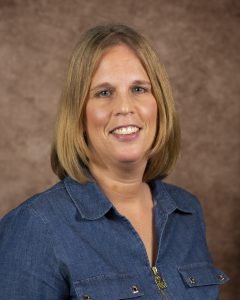Nearly one-fourth of the world’s wastewater comes from residential septic systems, according to the United Nations. But only 48% of such systems adequately treat wastewater.
The most common type of septic system includes the tank and a drain field – sometimes called a leach field. In Florida, nearly one-third of households depend on a septic system. The tank is a water-tight container buried in the ground. Treated waste goes from the septic tank to a drain field, where it’s absorbed in the ground.
Mary Lusk, a UF/IFAS assistant professor of soil, water, and ecosystem sciences, wrote a new article for the journal Lancet Planetary Health in which she connects climate change with septic systems.
We asked Lusk to explain this connection.

Q: Can you please tell us how climate change impacts septic tanks?
A: Climate change is causing a gradual rise in sea levels, and often that means higher groundwater levels for coastal areas. Septic systems need at least 24 inches of soil beneath them to adequately remove pollutants and their accompanying pathogens. Every fraction of rise in groundwater means septic systems treat pollutants less effectively. In many low-lying areas, like coastal Florida or small islands in the Caribbean and Pacific, the groundwater is already close to the surface, and these areas are especially vulnerable to small increases in groundwater rise.
Q: How do septic systems remove wastewater contaminants?
A: Each contaminant in wastewater may go through different processes in the septic system. Some pathogens die in the septic tank. Other pathogens and contaminants like nitrogen move out of the tank in the septic system effluent (the liquid waste that flows out of the tank) and begin to percolate down through the soil. There, the contaminants may either degrade by natural soil bacteria or get trapped by soil particles. This process is usually adequate for pathogen removal in unsaturated soils.
Q: What challenges do the pathogens from household septic systems pose, and why are socioeconomically challenged areas at risk?
A: If someone in a home is infected with a virus or bacteria, that infection can become part of their waste and enter the septic system. If the septic system does not remove that pathogen, it may travel to drinking water and infect someone else — sometimes even causing an outbreak of multiple infections. In Florida, septic systems typically remove pathogens very effectively, thereby protecting public health. But I’m concerned about what is typical in many lower-income areas, especially small, low-income islands in the Pacific and Caribbean. In those places, septic systems don’t remove pathogens optimally. Add sea level and groundwater rise to the mix, and we’re looking at an important public health concern.
Q: What tips would you give homeowners to ensure their septic systems are functioning properly?
A: You can ensure the system works properly throughout the year. That includes flushing only toilet paper and human waste down the toilet. Never flush items such as napkins, facial tissues, cotton swabs, “flushable” wipes or cigarette butts. You also may not know this, but don’t pour oil and fat into the kitchen drain. It’s best to limit use of your garbage disposal. Using a garbage disposal prevents excess organic matter from building up inside your septic tank. Composting is a good alternative.
Q: As we head into the heart of the 2022 Atlantic Hurricane Season, what do you suggest homeowners do to make sure their septic systems cope with rain that may saturate the soil?
A: Homeowners need to get their systems inspected and pumped every three to five years, depending on how many people live in the home. This will help keep the system working at its best even during heavy storms or other disasters. But if you see waste backing up in the toilet or bathtub, or if the area around your septic system stinks, that’s a sign that it’s not working correctly, and you should call a professional septic system inspector right away.
###
ABOUT UF/IFAS
The mission of the University of Florida Institute of Food and Agricultural Sciences (UF/IFAS) is to develop knowledge relevant to agricultural, human and natural resources and to make that knowledge available to sustain and enhance the quality of human life. With more than a dozen research facilities, 67 county Extension offices, and award-winning students and faculty in the UF College of Agricultural and Life Sciences, UF/IFAS brings science-based solutions to the state’s agricultural and natural resources industries, and all Florida residents.
 0
0
